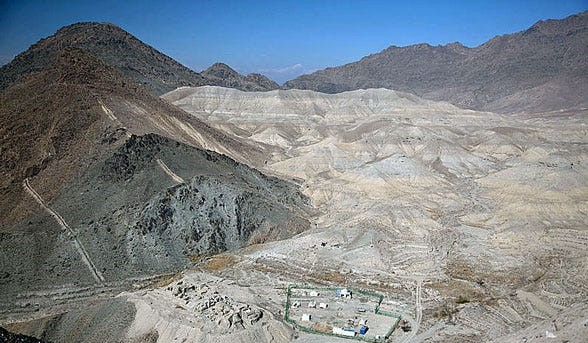
R Krishna Das
While China does seek a stable Afghanistan and would prefer a government not dominated by the Taliban, it had reportedly made its peace with the group under the assumptions that the United States and the Afghan government would not be able to resolutely defeat it. Subsequently, the Taliban would either control substantial Afghan territory or formally come to power.
China’s strategy to protect its investment in Afghanistan seems to have yielded the results; the Taliban has hinted for a truce.
Amidst intense battle between US led coalition forces and Taliban in 2008, a consortium of two Chinese state-owned companies namely China Metallurgical Group Corporation and Jiangxi Copper Company Limited signed a $ 2.9 billion contract with Kabul to mine copper from the Mes Aynak mines. Located North of Kabul, it is believed to contain the second largest high quality copper ore deposits in the world. The mining operations could not commence following the volatile security situation.
In 2016, an unexpected development came from the Taliban; much to the relief of China. “The Islamic Emirate of Afghanistan (official designation of Taliban) directs all its mujahideen to help in the security of all national projects that are in the higher interest of Islam and the country,” the Taliban said in a statement and specified that the Mes Aynak mines was one of the sites the Taliban is “committed to safeguarding.” Experts believed beyond doubts that such an announcement would come only if there was some ongoing interaction and congruency between Beijing and Taliban.
Even though Beijing has publicly expressed concerns about the safety of its citizens in Afghanistan and evacuated over 200 Chinese, it was reportedly in touch with the Taliban. The statement of Taliban spokesman Suhail Shaheen endorsed it. The Taliban sees China as a “friend” to Afghanistan and is hoping to talk to Beijing about investing in reconstruction work “as soon as possible”, Shaheen said.
Taliban has reportedly given two major assurances- one, that of ensuring safety of Chinese investments in Afghanistan, and two, in a clear departure from the past, declaring that Taliban won’t host Uighur Muslim separatists belonging to China’s Xinjiang Autonomous Region. By welcoming Beijing for carrying out “reconstruction and developing Afghanistan,” Shaheen has clearly indicated that Beijing has already struck a quid pro quo covert deal to provide assistance to Taliban in return for the safety of its investments.



